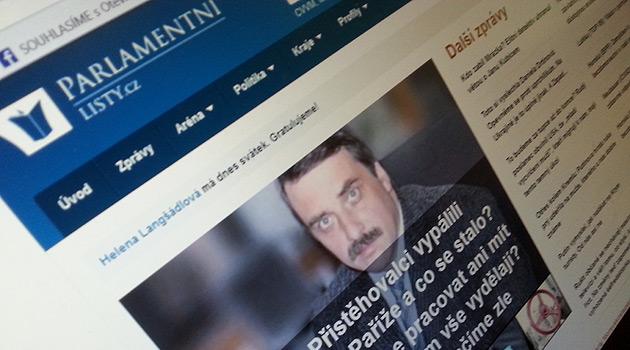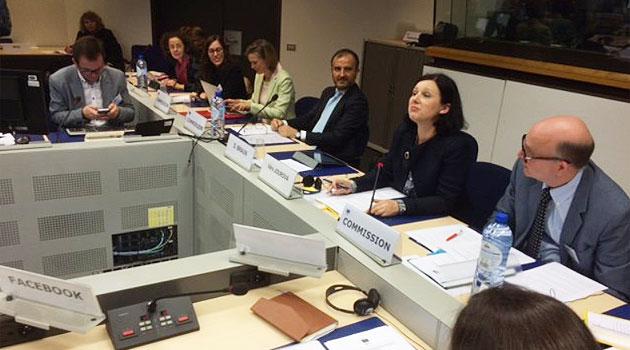Czech media analysis warns of pro-Kremlin websites: Dangerous propaganda and unfair reporting

Pro-Kremlin websites in the Czech Republic, primarily the online tabloid Parlamentní listy, are exploiting sophisticated methods for manipulating public opinion that break all the rules of professional journalism. Those are the results of an analysis performed by political scientists at Masaryk University with the support of the European Values think tank.
The researchers warn of the danger posed by these websites, which cannot be considered valid news sources precisely because of their exploitation of manipulative methods. They focused on four Czech-language websites that experts view as disseminating pro-Kremlin propaganda: AC24, Parlamentní listy, Sputnik and Svět kolem nás (“The World Around Us”).
The political scientists researched a total of 2 660 articles published on those sites during March of this year. The criteria for choosing the articles was their overall readership, which was why the infamous website Aeronet was not included in the sample.
“From the statistics it is possible to see that almost 40 % of the pieces attributed blame or responsibility for the situations described to a particular side of the issue, 34 % involved exaggerations and rumors, 18 % involved unjustified labeling, and almost 8 % of articles that were supposed to be news items included the author’s opinion, which they should not. All of this documents bad journalistic work,” the Masaryk University press release on the results of the analysis says.
Researchers were surprised that Parlamentní listy referenced sources for its reporting in only 40 % of cases. The other portals researched referenced sources an average of 75 % of the time.
According to the analysis, Parlamentní listy uses manipulative techniques more frequently than, for example the Sputnik website. “What is even more serious is that Czech politicians perceive [Parlamentní listy] as a standard place to present themselves,” warns political scientist Miloš Gregor, the second author of the research.
“Parlamentní listy is perceived as somewhere between the serious media outlets and the grey zone of pro-Kremlin manipulation. According to our data, however, they are the same, content-wise, as AC24 and we even encounter manipulative techniques in their reporting more frequently than on Sputnik,” Gregor said.
“Generally it doesn’t matter whether the pieces are called commentaries or news reporting – the notional border between the two has ceased to exist on these websites. The authors use emotional figures of speech or manipulative techniques, and every fifth article expresses negative emotions,” Petra Vejvodová, a specialist in propaganda from the Political Science Department at Masaryk University’s Faculty of Social Studies said during the press conference to launch the analysis.
The pro-Russian tendency of these websites, according to the researchers, is almost undectable with respect to their use of forged photographs or video footage, which is what people usually associate with propaganda, but is mainly to do with the style of reporting on these issues. The websites, for example, challenge the mainstream media reporting of the conflicts and wars in which Russia is involved.
